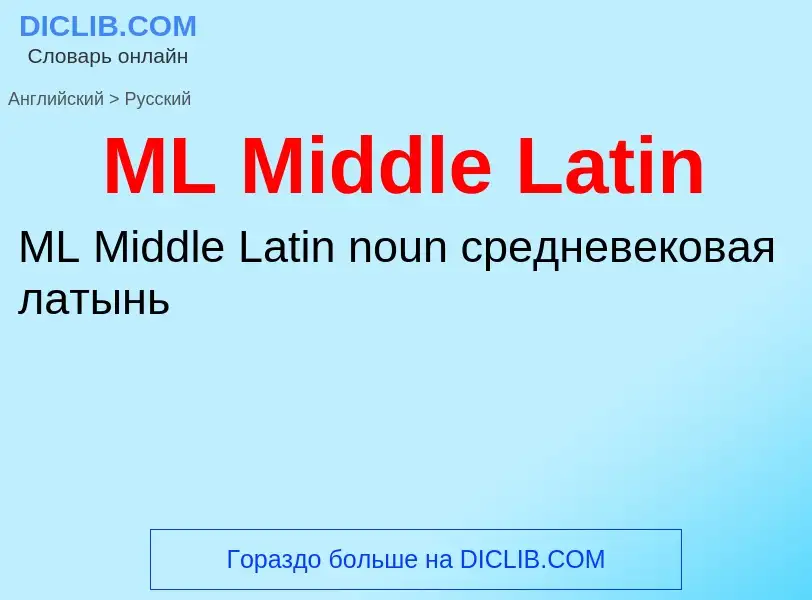Translation and analysis of words by ChatGPT artificial intelligence
On this page you can get a detailed analysis of a word or phrase, produced by the best artificial intelligence technology to date:
- how the word is used
- frequency of use
- it is used more often in oral or written speech
- word translation options
- usage examples (several phrases with translation)
- etymology
ML Middle Latin - translation to English
Wikipedia

Medieval Latin was the form of Literary Latin used in Roman Catholic Western Europe during the Middle Ages. In this region it served as the primary written language, though local languages were also written to varying degrees. Latin functioned as the main medium of scholarly exchange, as the liturgical language of the Church, and as the working language of science, literature, law, and administration.
Medieval Latin represented a continuation of Classical Latin and Late Latin, with enhancements for new concepts as well as for the increasing integration of Christianity. Despite some meaningful differences from Classical Latin, Medieval writers did not regard it as a fundamentally different language. There is no real consensus on the exact boundary where Late Latin ends and Medieval Latin begins. Some scholarly surveys begin with the rise of early Ecclesiastical Latin in the middle of the 4th century, others around 500, and still others with the replacement of written Late Latin by written Romance languages starting around the year 900.
The terms Medieval Latin and Ecclesiastical Latin are sometimes used synonymously, though some scholars draw distinctions. Ecclesiastical Latin refers specifically to the form that has been used by the Roman Catholic Church (even before the Middle Ages in the Antiquity), whereas Medieval Latin refers to all of the (written) forms of Latin used in the Middle Ages. The Romance languages spoken in the Middle Ages were often referred to as Latin, since the Romance languages were all descended from Vulgar Latin itself. Medieval Latin would be replaced by educated humanist Renaissance Latin which then developed into New Latin.


![Book of Hours]] contains prayers in medieval Latin. Book of Hours]] contains prayers in medieval Latin.](https://commons.wikimedia.org/wiki/Special:FilePath/MilanBTCod470BookOfHours2FoliosAnnuncShepherdsDecortatedInit2.jpg?width=200)
![The [[Prüfening dedicatory inscription]] from [[Bavaria]], dated to 1119, composed in medieval Latin. It was printed rather than carved. The [[Prüfening dedicatory inscription]] from [[Bavaria]], dated to 1119, composed in medieval Latin. It was printed rather than carved.](https://commons.wikimedia.org/wiki/Special:FilePath/Prüfeninger Weiheinschrift. Pic 01.jpg?width=200)
